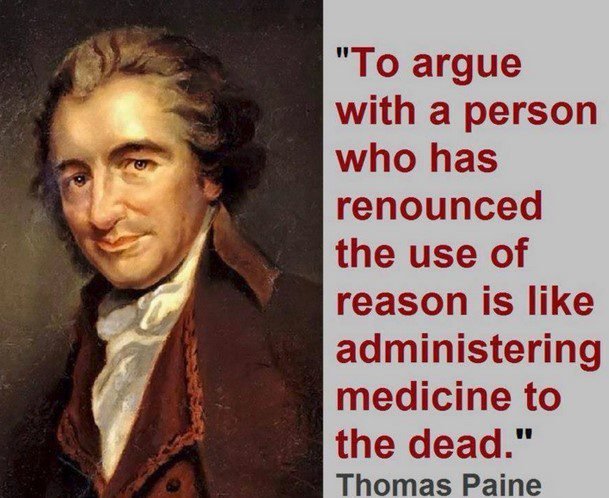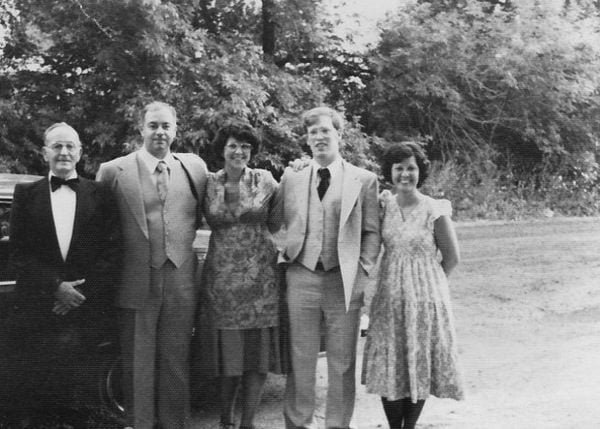
Recently, I received an email from an Evangelical man in California named Craig. Instead of answering Craig personally, I thought I would turn my response into a blog post. Since I believe Craig was being sincere when he wrote me, I have removed all personal identifiers from his email.
Craig wrote:
Hi Bruce. Nice to meet you.
….
Full disclosure: I remain a follower of Jesus Christ.
Bruce, while I’m sure there are exceptions, the I.F.B. community is not known for either their scholarship or for reflecting the love of Jesus. Did you ever explore other Christian faith communities before leaving Christianity? Regarding scholarship, I saw on your website that you enjoy reading books by Bart Ehrman. I’m sending you two links to debates Ehrman had with James White and Michael Brown. The links are to Ehrman’s blog site. Ehrman posted the debates on his blog site. On the respective blogs Ehrman acknowledges that he had two very worthy challengers. The respective topics are the veracity of the scriptures and the problem of suffering. I appreciate Ehrman’s transparency. Listen to the debates and draw your own conclusions but please do watch them both.
I’m sure you’re familiar with the story of Charles Templeton. Did you ever read Lee Strobel’s account of meeting with him? It’s both profound and heart wrenching. It’s chronicled in the preface to Strobel’s book entitled “The Case For Faith”. Here’s the link to their encounter: Charles Templeton: Missing Jesus
I’d love to refer you to numerous books regarding the evidences for Christianity. One of my favorites is “More Than A Carpenter” by Josh McDowell. Bruce, go with the facts. I know you’ve been hurt. So have I. Regardless, go with the facts.
I’ll close with this fact: Jesus loves you Bruce.
I appreciate you taking the time to read this email. Take good care.
Craig read all of three posts on this site:
Based on reading these three posts, Craig concluded that I was uninformed about Christianity and that I was hurt in some way as a Christian and a pastor. In other words, I am an atheist due to a lack of knowledge about Christianity — Evangelicalism, in particular — and emotional harm caused by unnamed others.
First, I was in the Christian church for 50 years. I was an Evangelical pastor for 25 of those years. Yes, I pastored several Independent Fundamentalist Baptist (IFB) churches, but I also pastored a Reformed Baptist church, a Sovereign Grace Baptist church, a Southern Baptist church, a Christian Union church, and a nondenominational church.
Second, I spent thousands and thousands of hours preparing my sermons, investing countless hours reading/studying the Bible, reading theological tomes, and reading Christian biographies. At one time, I had over 1,000 theological books in my library. I remember a church teenager coming into my office one day, marveling at my library. He asked, “did you read ALL of these books?” I replied, “yes, I really have read all of these books.” I also had Bible study software on my computer that I used in my sermon preparation. By all accounts, I was a well-read pastor, especially from an Evangelical/Calvinistic perspective.
Yes, I read Lee Strobel’s and Josh McDowell’s books. Even in my solidly Evangelical days, I considered these books Christianity-lite, unpersuasive at best, pablum at worst. I have never understood how Evangelicals think Strobel and McDowell are pillars of Evangelical theology, when in fact their writings are little more than trashy Christian fiction.
My leaving the ministry and Christianity is not due to a lack of knowledge. I wish there were an Evangelical competency test I could take so it would put an end to believers thinking I am ignorant of their beliefs. I’m not. I know the Bible and cardinal doctrines of Evangelicalism inside and out. In the twelve years I have been blogging, I have yet to hear a Christian argument I have not heard before. In fact, since the Bible is a closed canon, it is unlikely that Evangelicals will have original thoughts — outside of their attempts to revise their interpretations to better “fit” in a culture that increasingly rejects them.
Let me move on to Michael Brown and James White. I follow both of them. I was actually casual friends with White years ago. That said, both men are Fundamentalists. They may be more educated than the average Bible-thumper, but their theology is the same as some hillbilly preacher who pastors a church on the backside of a hill in West Virginia. They may be more “sophisticated,” but once you peel away the patina covering their arguments, what you find is generic Christian Fundamentalism. I appreciate Dr. Bart Ehrman’s willingness to engage these men in debates. Personally, I am not a fan of debates. I prefer reading to debates that are most often decided by who has the best personality and rhetorical skills. I own all of Dr. Ehrman’s books, and they are, for my purposes, intellectually satisfying.
When it comes to the “veracity of the Bible” and the problem of suffering, I have my own decided opinions, based on extensive study and reflection. I have concluded that the Bible is not what Evangelicals claim it is; that it is an errant, fallible, contradictory collection of texts written by fallible, uneducated men; that its central claims are demonstratively false (i.e. virgins don’t have babies, dead people don’t come back to life). I have also concluded that Evangelical apologists have no satisfactory explanation for suffering, especially when non-human animal suffering is included.
Craig makes an attempt to appeal to my emotions when he says, “we’ve both been hurt.” First, I don’t know anything about Craig, so it is impossible for me to know if he has, in fact, been hurt, or what he even means by the word. Second, Craig doesn’t know me, so he can’t possibly know whether I have been “hurt.” Had Craig delved more into my writing, he would have found that I have thoroughly discredited the “hurt” accusation. Sure, psychological reasons played a part in my deconversion, but the primary reason I divorced Jesus is because I no longer believe the central claims of Christianity are true. (Please see The Michael Mock Rule: It Just Doesn’t Make Sense.)
Craig implores me to “go with the facts.” And that’s exactly what I have done. Of course, Craig can’t wrap his mind around this fact. In his thinking, anyone who reads Strobel and McDowell and watches a couple of debates will immediately repent of their sins and ask Jesus to save them. Sadly, Evangelicals have little capacity to see possibilities outside the narrow confines of their peculiar religion. Such thinking is not surprising given the fact that Evangelicals believe right beliefs are what save a man and deliver him from Hell. Never mind my good works. Never mind the fact that I am a good, decent, kind husband, father, grandfather, and neighbor. All that matters is that I believe the “right” things. The Evangelical gospel is, in fact, this: “Believe THIS and thou shalt live.”
As far as whether IFB churches and pastors “love” Jesus, I would argue that I have met “mean as venomous snakes” Christians in all sorts of sects and churches. Non-IFB Evangelicals can be every bit as nasty and arrogant as people in IFB churches — and I have the comments and emails to prove it.
I spent a number of years in the IFB church movement. I met more than a few kind, decent, thoughtful people who deeply loved their version of Jesus. To suggest that the IFB church movement is somehow worse than Evangelicalism at large is a denial of the evidence at hand. Evangelicals are the most hated sect in America. Evangelicals, along with their counterparts in Catholicism and Mormonism are the primary drivers of the vile culture war that permeates the United States. It is Evangelicals who gave us our pussy-grabber-in-chief Donald Trump. Sure, IFB Christians are a subset of Evangelicalism, but they are hardly a blip on the religious/political radar when compared to Southern Baptists and nondenominational Evangelicals.
Let me conclude this post by answering this question posed by Craig: “Did you ever explore other Christian faith communities before leaving Christianity?”
Here’s my answer from a post I wrote in 2015 titled, But Our Church is DIFFERENT!
I pastored my last church in 2003. Between July of 2002 and November of 2008, my wife and I, along with our children, personally visited the churches that are listed below. These are the church names we could remember. There are others we have either forgotten or vaguely remember, so we didn’t put them on the list. Churches in bold we attended more than once. All told, from 2002-2008 we visited about 125 churches. If I added every church I have ever attended or preached for in my lifetime, the count would be over 200.
When Christians tell me THEIR church is different, I often tell them that I have been to THEIR church. Not literally of course, but one church or another that I have visited over the past 40+ years is just like theirs. Churches are not as unique as they would like to think they are. Polly and I concluded that the name over the door may be different, but after a while, they all look and sound the same. Congregation size, building, music, preaching style, government, and liturgy might be different, but this is nothing more than the man behind the counter at the ice cream shop asking you: regular cone, waffle cone, or bowl.
If the church has a website, I linked to it. A handful of these churches are no longer open.
| Churches We Visited 2002-2008 | Location |
| Our Father’s House | West Unity, Ohio |
| First Brethren Church | Bryan, Ohio |
| First Baptist Church | Bryan, Ohio |
| Grace Community Church | Bryan, Ohio |
| Lick Creek Church of the Brethren | Bryan,Ohio |
| First Church of Christ | Bryan, Ohio |
| Eastland Baptist Church | Bryan, Ohio |
| Bryan Alliance Church | Bryan, Ohio |
| Union Chapel Church of God | Bryan, Ohio |
| Celebrate Life Christian Fellowship | Bryan, Ohio |
| Faith United Methodist Church | Bryan, Ohio |
| Trinity Episcopal Church | Bryan, Ohio |
| Archbold Evangelical Church | Archbold, Ohio |
| Sherwood Baptist Church | Sherwood, Ohio |
| Ney Church of God | Ney, Ohio |
| Ney United Methodist Church | Ney, Ohio |
| Sonrise Community Church | Ney, Ohio |
| Farmer United Methodist Church | Farmer, Ohio |
| Lost Creek Emmanuel Missionary Church | Farmer, Ohio |
| Hicksville Church of the Nazarene | Hicksville, Ohio |
| Community Christian Center | Hicksville, Ohio |
| Grace Bible Church | Butler, Indiana |
| St John’s Lutheran Church | Defiance, Ohio |
| Harvest Life Fellowship | Defiance, Ohio |
| Community Christian Center | Defiance, Ohio |
| Second Baptist Church | Defiance, Ohio |
| First Baptist Church | Defiance, Ohio |
| Grace Episcopal Church | Defiance, Ohio |
| First Assembly of God | Defiance, Ohio |
| Defiance Christian Church | Defiance, Ohio |
| First Presbyterian Church | Defiance, Ohio |
| St John’s United Church of Christ | Defiance, Ohio |
| Peace Lutheran Church | Defiance, Ohio |
| Pine Grove Mennonite Church | Stryker, Ohio |
| St James Lutheran Church | Burlington, Ohio |
| Zion Lutheran Church | Edgerton, Ohio |
| Northwest Christian Church | Edon, Ohio |
| Restoration Fellowship | Williams Center, Ohio |
| Pioneer Bible Fellowship | Pioneer, Ohio |
| Frontier Baptist Church | Frontier, Michigan |
| Salem Mennonite Church | Waldron, Michigan |
| Waldron Wesleyan Church | Waldron, Michigan |
| Lickley Corners Baptist Church | Waldron, Michigan |
| Prattville Community Church | Prattville, Michigan |
| Betzer Community Church | Pittsford, Michigan |
| Fayette Church of the Nazarene | Fayette, Ohio |
| Fayette Bible Church | Fayette, Ohio |
| Fayette Christian Church | Fayette, Ohio |
| Morenci Bible Fellowship | Morenci, Michigan |
| First Baptist Church | Morenci, Michigan |
| Demings Lake Reformed Baptist Church | Demings Lake, Michigan |
| Medina Federated Church | Medina, Michigan |
| Thornhill Baptist Church | Hudson, Michigan |
| First Baptist Church | Hudson, Michigan |
| Rollins Friends Church | Addison, Michigan |
| Canandaigua Community Church | Canandaigua. Michigan |
| Alvordton United Brethren | Alvordton, Ohio |
| Pettisville Missionary Church | Pettisville, Ohio |
| Vineyard Church | Toledo, Ohio |
| Providence Reformed Baptist Church | Toledo, Ohio |
| Lighthouse Memorial Church | Millersport, Ohio |
| Newark Baptist Temple | Heath, Ohio |
| Church of God | Heath, Ohio |
| 30th Street Baptist Church | Heath, Ohio |
| St Francis De Sales Catholic Church | Newark, Ohio |
| Bible Baptist Church | Newark, Ohio |
| Cedar Hill Baptist Church | Newark, Ohio |
| Eastland Heights Baptist Church | Newark, Ohio |
| Northside Baptist Church | Newark, Ohio |
| Newark Brethren Church | Newark, Ohio |
| St John’s Lutheran Church | Newark, Ohio |
| Vineyard of Licking County | Newark, Ohio |
| Vineyard Grace Fellowship | Newark, Ohio |
| Grace Fellowship | Newark, Ohio |
| Faith Bible Church | Jersey, Ohio |
| Vineyard Christian Church | Pataskala, Ohio |
| Cornerstone Baptist Church | New Lexington, Ohio |
| St Nicolas Greek Orthodox Church | Fort Wayne, Indiana |
| Nondenominational Church | Angola, Indiana |
| Nondenominational Church | Fremont, Indiana |
| Victory Baptist Church | Clare, Michigan |
| First Assembly of God | Yuma, Arizona |
| Desert Grace Community Church | Yuma, Arizona |
| Calvary Lutheran Church | Yuma, Arizona |
| Bible Baptist Church | Yuma, Arizona |
| Calvary Chapel | Yuma, Arizona |
| Oasis | Yuma, Arizona |
| Faith Baptist Church | Yuma, Arizona |
| Valley Baptist Church | Yuma, Arizona |
| Calvary Assembly of God | Yuma, Arizona |
| Foothills Assembly of God | Yuma, Arizona |
| Morningside Baptist Church | Yuma, Arizona |
| Faith Horizons Baptist Church | Yuma, Arizona |
| Stone Ridge Baptist Church | Yuma, Arizona |
| Old Order Mennonite Church | Yuma, Arizona |
| Grace Bible Fellowship | Yuma, Arizona |
| Calvary Temple of Christ | Yuma, Arizona |
| Maranatha Baptist Church | Yuma, Arizona |
| Independent Lutheran Church | Yuma, Arizona |
| Community Christian Church | Yuma, Arizona |
| Church meeting in funeral chapel | Yuma, Arizona |
| Pentecostal Church | Winterhaven, California |
| North Holtville Friends Church | Holtville, California |
| Sierra Vista Baptist Church | Sierra Vista, Arizona |
| Hedgesville Baptist Church | Hedgesville, West Virginia |
| New Life Baptist Church | Weston, West Virginia |
I think I can safely say that I have covered all my bases when it comes to Christianity. I would ask Craig: have you done the same? Reason loves you, and has a wonderful plan for your life.
Bruce Gerencser, 66, lives in rural Northwest Ohio with his wife of 45 years. He and his wife have six grown children and thirteen grandchildren. Bruce pastored Evangelical churches for twenty-five years in Ohio, Texas, and Michigan. Bruce left the ministry in 2005, and in 2008 he left Christianity. Bruce is now a humanist and an atheist.
Connect with me on social media:
Your comments are welcome and appreciated. All first-time comments are moderated. Please read the commenting rules before commenting.
You can email Bruce via the Contact Form.




